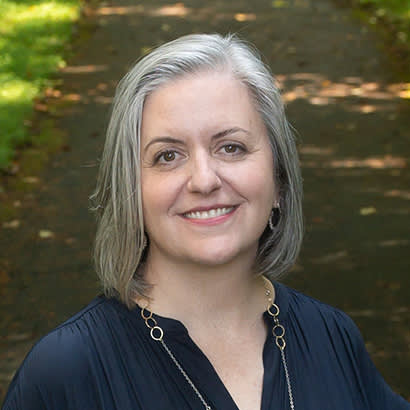
For an enhanced digital experience, read this story in the ezine.
I love that the timing of this issue coincides with the last few weeks of our Innovation Awards nomination period. (If you haven’t already submitted a nomination, you can do so until March 24 here.) These awards give us a chance to highlight the creative ways that you are shaping and reshaping programs, how you are responding to challenges in your agencies and communities, and how you are creating effective partnerships to get the work done.
From the 2018 award-winning Parks After Dark program in Los Angeles to the 2022 award-winning UPSLIDE program in Tallahassee, Florida, you prove every year that we can strengthen community ties, combat loneliness, better serve diverse populations, and produce positive health outcomes. These awards also recognize the ways in which you are supporting all members of our communities, including the species and biodiversity that depend on us. Last year’s Innovation in Conservation Award showcases how the winner, Forest Preserves of Cook County, Illinois, strategically partnered to tackle the light pollution that has made Chicago a dangerous city for migratory birds. These are great stories, and you can read these and more in our 2022 Innovation Guide.
Similar to the Innovation Guide, this issue of the magazine showcases the multi-faceted ways that innovation challenges assumptions and builds a culture that celebrates trying new things. Innovation is interwoven with best practices, and, in fact, is a critical best practice — finding ways to deliver better services, programs, spaces and outcomes for our communities. And, innovation, of course, leverages the power of data, technology and information tools, so that we can better design and deliver our services. All of these ideas and practices — our ability to innovate, to strive to do better — depend on each of us.
Each one of us woke up today and made countless decisions about what to do, what to focus on, how to solve a problem, and how to engage with others, just to name a few. We could approach those decisions the same way we did yesterday and the day before. Or, we could approach them with curiosity. That problem you are trying to solve — what if you took a few steps back and tried looking at it differently? You might come up with the same solution, or you might be inspired to try something new.
On a personal note, a friend invited me to join her in doing a 21-day meditation challenge. We in parks and recreation understand the links between practices like meditation and positive mental health outcomes, so I said yes, of course! As I write this, I am 14 days into the 21-day challenge, and I can feel a difference in how it is helping me start each day. I feel better able to take that step back and look at challenges and opportunities with more curiosity, rather than jumping to an immediate reaction. Self-care, those daily and weekly practices that shore up our physical and mental health, enable us to be more creative and innovative in our work. It’s another one of those virtuous cycles that could be the start of a transformative practice in your community — one that we can celebrate with an Innovation Award.
Kristine Stratton, President and CEO, NRPA

